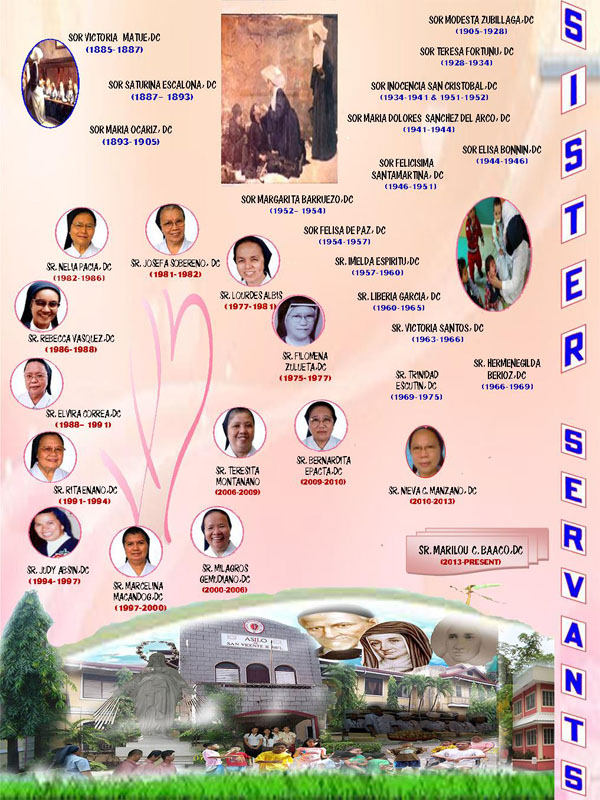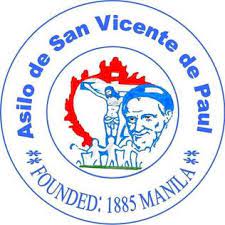Asilo de San Vicente de Paul (ASVP), which started on July 26, 1885, was first known as Casa de San Vicente de Paul. It's a symbol of long-lasting kindness, all thanks to its remarkable founder, Sr. Asuncion Ventura. She created history by becoming the first Filipino woman to establish an orphanage in the Philippines.
Understanding the need for long-term help, Sr. Asuncion made a significant move. She officially handed over these valuable resources to the Daughters of Charity when she got her family's inheritance. This thoughtful action ensured that the institution would continue to thrive.
Our journey of 136 years has been extraordinary, sustained by our deep faith and trust in Divine Providence. During our initial years, the Spanish Government graciously provided us with 20 bags of rice each month to assist our operations. Later on, the Americans continued this support, but it unfortunately ceased with the enactment of the Jones Law, which put an end to all government assistance for charitable causes.
Despite the challenges we faced, we persisted. Guided by faith and the kindness of generous individuals, we survived difficult times and continued to grow. As we set our sights on the future, we cordially invite you to be a part of a legacy that has persisted for over a century—filled with care, transformation, and endless hope.

Sr. Asuncion Ventura, D.C., made history as the first Filipina woman to create an orphanage in the Philippines. Her deep compassion and steadfast dedication to helping those in need were evident when she opened Asilo on July 26, 1885.
During her early years, Cristina Ventura, later known as Sr. Asuncion, was born on July 30, 1853, in Bacolor, Pampanga. She was the fourth child of Don Honorio Ventura-Hocorma and Dona Cornelia Bautista. She grew up in one of Bacolor's most prosperous and esteemed families, where her parents instilled in her a strong faith and a deep love for God.
Workers on the vast Ventura family farm were treated with warmth and respect as if they were part of the family. Cristina deeply valued their friendship and frequently spent time with them in different places, such as church plazas, home backyards, and school campuses, where she showed her kindness. Like many noble family daughters, she departed from her hometown to attend the renowned Colegio de la Concordia de Manila. This educational institution, managed by the Daughters of Charity, was widely regarded as the most prestigious in the archipelago during that era.
She received a strong education in Catholic faith and academics during her upbringing. Inspired by the Daughters of Charity, Cristina sincerely desired to help the less fortunate. With her vibrant personality and natural leadership abilities, she inspired even her elders to confront the challenges of poverty, disease, and despair while excelling in her academic pursuits.
Her Calling: Cristina felt a profound calling to assist those in need, which led her to dedicate herself to the Daughters of Charity of St. Vincent de Paul. Despite facing initial opposition from her parents, she remained resolute. Following her divine calling, she joined the Daughters of Charity on March 19, 1875, taking on the name Sr. Asuncion Ventura, D.C.
Founding Casa de San Vicente de Paul: After securing her share of the family inheritance, she legally conveyed it to the Daughters of Charity in the Philippines. After obtaining her portion of the family inheritance, she officially transferred it to the Daughters of Charity in the Philippines. Later, she sold certain estate sections to maintain the facility and support its underprivileged residents. The institution she established transcended its role as a mere orphanage; it additionally operated as an educational center to provide basic education and essential life skills like sewing and embroidery, enabling young girls to achieve self-reliance and perseverance.
Funding initially came from the Spanish government and was continued by the Americans until the Jones Law ceased all such government-backed aid. Nevertheless, Sr. Asuncion continued her charitable activities, extending her help to urban slums, supporting the Escuela Catolica de Paco, and offering assistance to family members and friends.
Her Final Wishes: On November 22, 1917, she appointed her niece, Dona Belen Ventura Hocorma de Santos, as the executor of her estate, making Asilo the sole recipient. Right up to her passing at 70, she tirelessly carried out charitable deeds, leaving behind a will that encouraged her family members to continue her legacy. Sr. Asuncion passed away six years later, on November 22, 1923. Still, her influence lives on, impacting countless lives through Asilo's continuous efforts. Asilo adapts by introducing programs and services to address the challenges faced by today's underprivileged and marginalized individuals.

